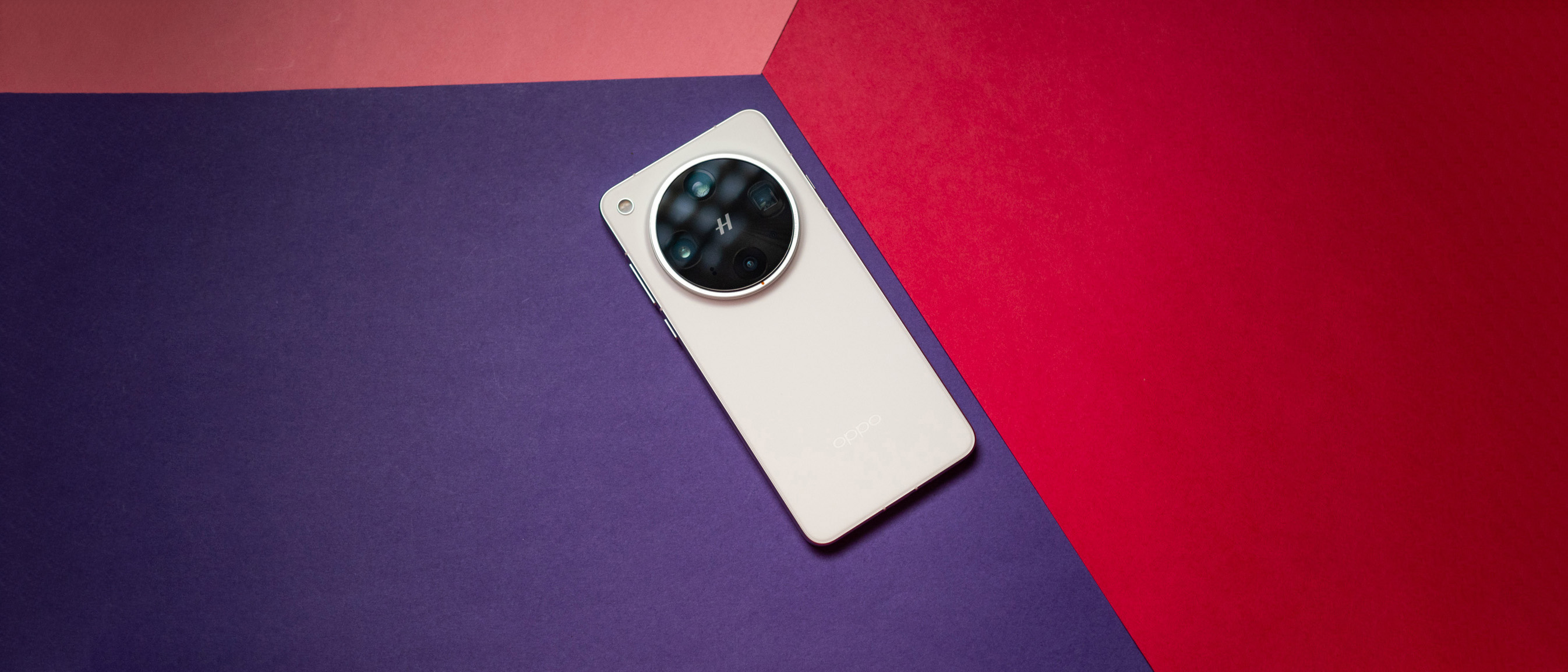The Google Gemini app still isn't available for some phones. Why not?
A disappearing act.
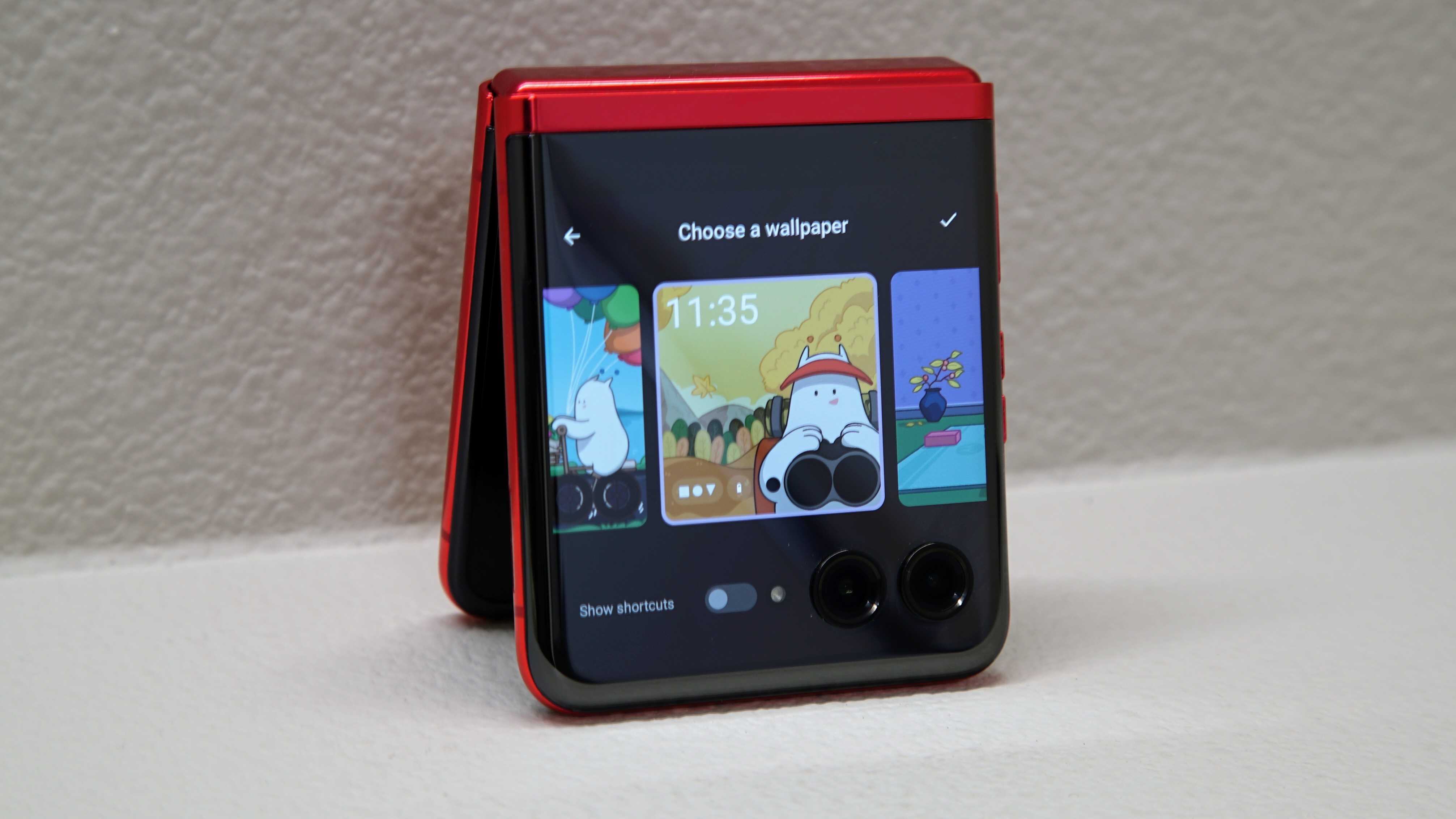
Google released the standalone Gemini app in February 2024, but today — months later — it's still unavailable for some phones that meet the requirements like the Moto Razr.
Officially, the requirements for the app are very light. According to Google's support page on Gemini, "the Gemini mobile app is available on Android phones, including many foldables, with 2 GB of RAM or more, running Android 10 and up." You also have to have your phone set to one of 19 supported languages and live in one of over 150 supported countries.
So yeah, these requirements are really easy to meet but don't tell the whole story. They never do.
We reached out to Google about this and they told us “The Razr isn’t supported just yet but we are working on it and aim to have it available soon.” This doesn't really answer the question of why. Everyone is sure that Google will make it available one day but there always seems to be some other hidden set of rules about which phones see which features, and when.
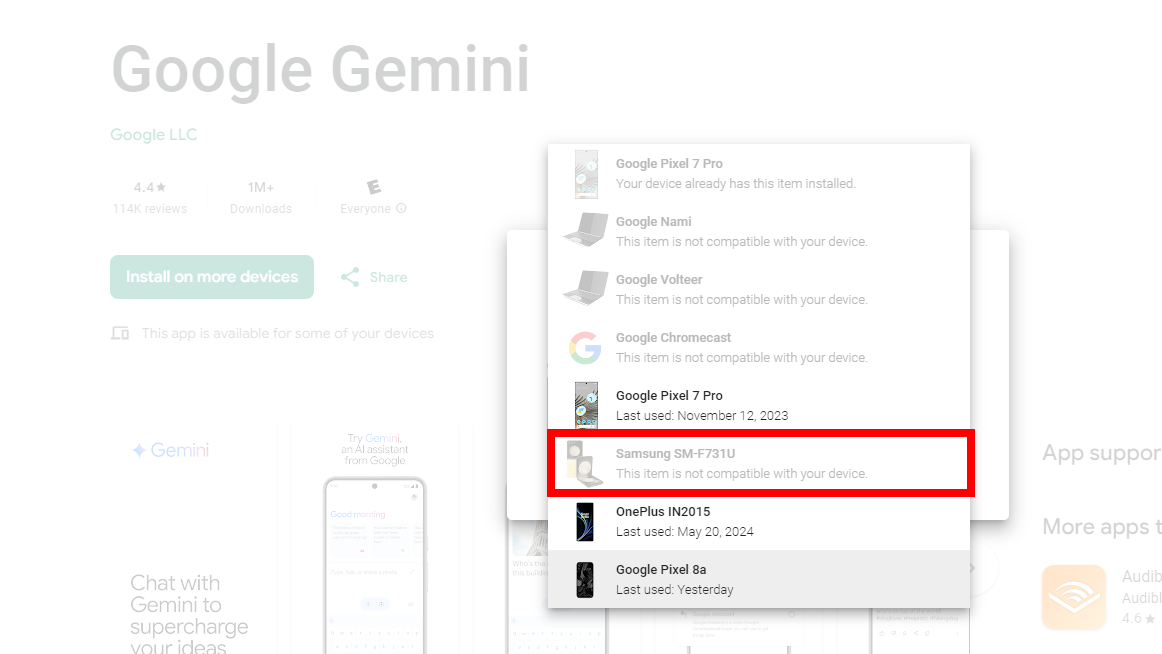
It's not just the Razr, either. You would think Google wants Gemini available for all the best Android phones, but it isn't. For example, the Gemini app is officially available for the Samsung Galaxy Z Flip 5. Some carrier models, though, can't install it. That's the case with the AT&T version I have here on my desk. There seems to be no rhyme or reason and without a list of all supported devices — which Google does not provide — you have to try it yourself to know if you can get the app.
To make things even more confusing, the app was available for a short time for some phones that are no longer supported. If you have a Moto Razr you could install it from Google Play when it was first released but now it's gone and you're left with an unsupported app that could have security and functionality issues.
Since there is no obvious technical reason as to why, it has to be something else right? I mean if the Razr (which meets all the requirements) was on the initial rollout list and some Z Flip models can run it without any issues it can't be hardware limitations holding it back.
Be an expert in 5 minutes
Get the latest news from Android Central, your trusted companion in the world of Android
This isn't exactly a new phenomenon. It seems like every time Google has a new software product initial availability is limited in some way or another. Sometimes the reasons seem to make sense, like language or region support, but other times it feels like Google is simply playing favorites. And sometimes, like with the recent circle-to-search feature, Google is playing favorites.
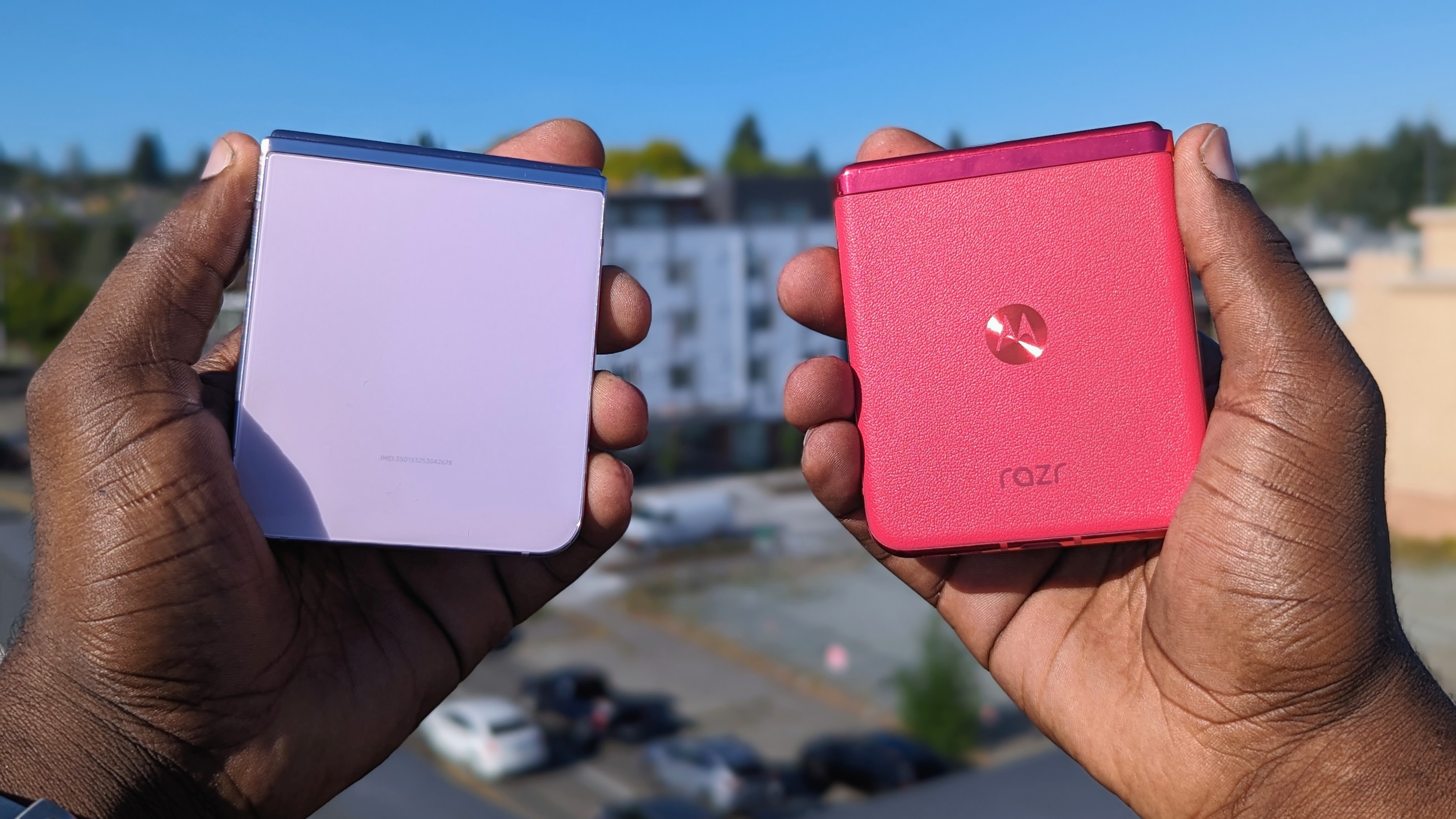
There is an explanation that only really makes sense when you consider how many different Android phones are out there — Google is trying to control the experience and doesn't want to release anything that doesn't meet its performance expectations.
Admittedly, that feels like a low bar to set considering how ... goofy ... some Google products are at launch. Ultimately, Google just wants everything to work in a way that people don't complain about. I don't mean tech enthusiasts with high expectations, but the fabled "average consumer" that makes up the bulk of worldwide smartphone sales. They want to install the cool new thing and do cool new things with it.
There may be performance issues on some phones. The Moto Razr or certain software variants of the Flip 5 are very different under the hood when compared to something like the Pixel 7a. This is bound to happen when you allow different companies to build their own OS from your code base. Since Gemini replaces Assistant in most cases, the software wasn't built with it in mind.
I don't have the answers here, nor does anyone else who isn't working on the Gemini team at Google. I do know how to "fix" it though: transparency.
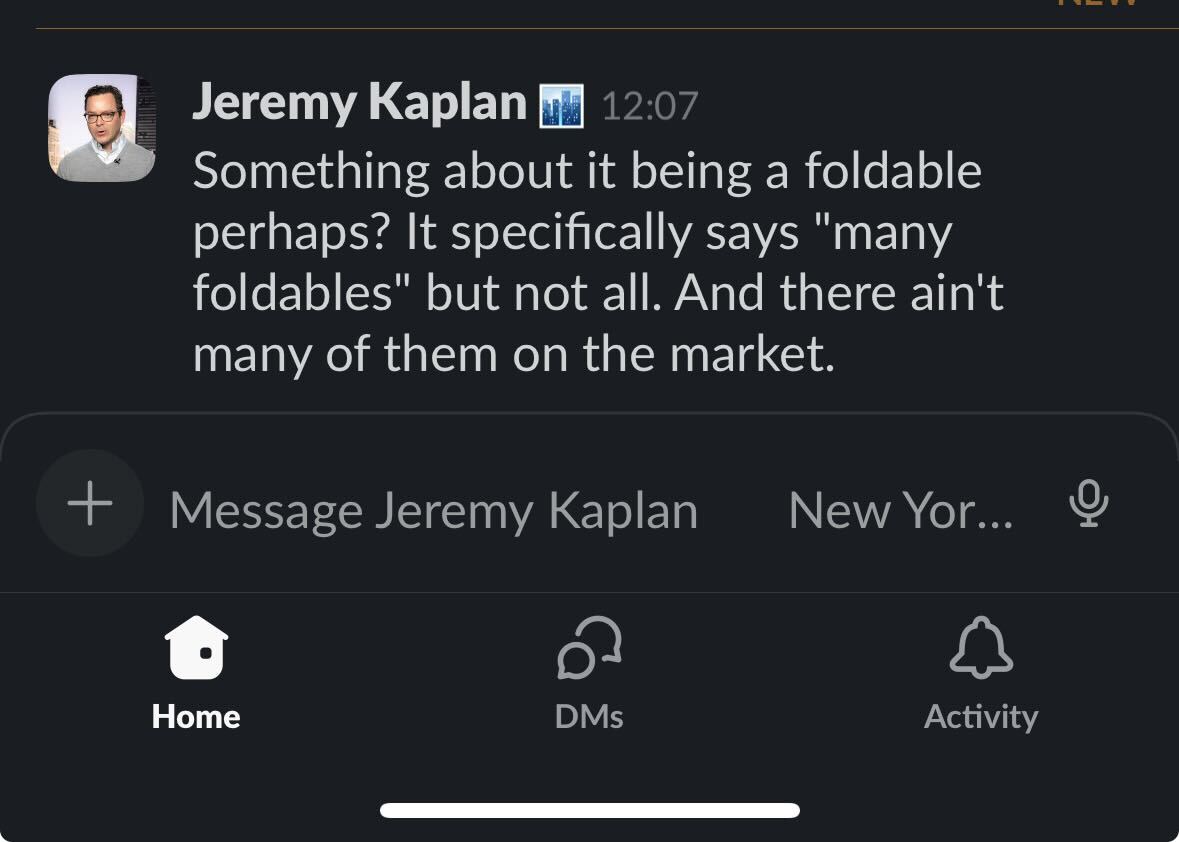
If Google were to come out and say something like "There are issues with the always-listening component of Google Gemini on the Moto Razr and we're working with the team at Motorola to resolve them", nobody would hate them for it. (Note that this is just an example and I have no idea what any issues may be.) We all understand that writing complicated software isn't easy, and would probably appreciate that Google is trying to make sure everything works well before dumping another product on us all.
Being left in the dark is never a good look and a big reason why people think Apple does it better. Nothing is shipped until it's ready for every iPhone. Maybe those people are right and Google needs to change how it rolls out new software products.
Either way, it wouldn't hurt to let us know a bit about what's going on.

Jerry is an amateur woodworker and struggling shade tree mechanic. There's nothing he can't take apart, but many things he can't reassemble. You'll find him writing and speaking his loud opinion on Android Central and occasionally on Threads.
You must confirm your public display name before commenting
Please logout and then login again, you will then be prompted to enter your display name.
